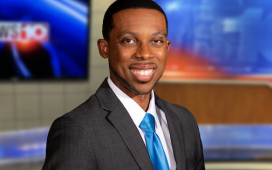“I wanted to make something like this after Raging Bull,” Scorsese remarked during a panel discussion following a premiere event for The Saints. After that 1980 film, he planned to leave Hollywood behind and partner with Italy’s RAI Television, which had produced similar passion projects with famed directors like Roberto Rossellini. But that version never came together, and the idea sat on the shelf until he and Leshem met in 2017 for what was supposed to be a 30-minute pitch session.
“Three hours later, we were still in that meeting,” Leshem says about selling Scorsese on the series that flowered into The Saints. “At the end of it, he shook my hand and said: ‘Great, let’s do it.’”
Leshem’s own journey towards The Saints required no small amount of faith. The son of Holocaust survivor and, later, Israeli ambassador Moshe Leshem, he grew up in a Jewish household where education was prioritized over religion. In fact, Leshem’s father—who he describes as a “devout atheist”—sent him to Catholic school while the family was stationed in Cophenhagen, Denmark, specifically because of it offered superior academics.
“That’s where I first heard the stories of the saints,” Leshem recalls. “Listening to them from a Jewish perspective, I was less interested in the miracles and more interested in this notion that these people believed in something so strongly that in many cases they were willing to die for it.”

That notion followed Leshem into adulthood, shaping not only his ideas about religion, but also storytelling. He views canonized saints like Joan of Arc and Thomas Becket not as religious idols frozen in time, but flesh and blood humans made heroic by their belief in something greater than themselves—be it a deity or an ideal. That dovetails with Scorsese’s own longtime fascination with flawed characters caught between the twin poles of punishment and enlightenment.
“Even Scorsese films that seem to have nothing to do with religion or faith, are about people who turn to faith and people who turn away from faith,” Leshem notes, pointing to gangster stories like Goodfellas and Casino as examples. “We really saw eye-to-eye about how to tell these stories. We’re trying to give you a sense of what these people were really like and why they were willing to do whatever’s necessary to follow something they believe in.”












